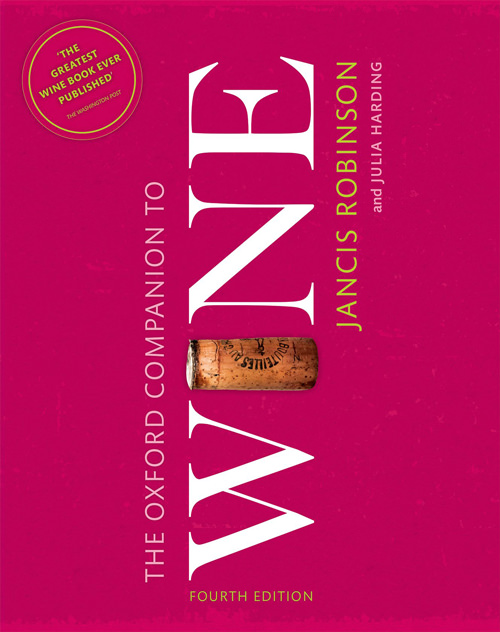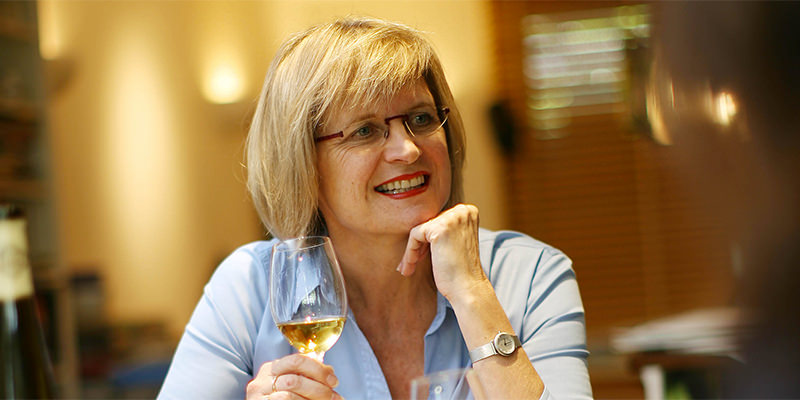Jancis Robinson is without question one of the most respected wine critics in the world, and with good reason: she’s been responsible for creating informative yet accessible content for decades. And this month she has released the fourth edition of what many, including us here at VinePair, regard to be the best book there is about wine, The Oxford Wine Companion. Jancis has seen the wine industry change and evolve over her storied career, and last week she took time with us to look both inward and outward, reflecting not only on the evolving role of the critic but also to predict what might be coming next.
How do you think the critic’s role has evolved over your career?
I’d say that on the readers’ part there has been a move away from simply wanting ratings and tasting notes to wanting stories and journalism – the human background to wines with their makers’ philosophy. Also, there was a time when people could learn about wines and their makers only from books and articles but now virtually every producer has a website.
There was a point in time when a high-profile critic could literally make or break a winery, but now with so many new regions and wine styles to choose from, coupled with a more informed consumer base, does this still hold true?
I’m not sure. I think they can probably make one by publicizing a new or obscure one but I think some consumers today actively prefer not to follow the mainstream so that criticism of a winery might not irrevocably break an outfit’s reputation.
Which critics do you still see as being influential?
I’m probably not the right person to ask as I live in the UK, where individual critics have never had particularly strong influence.
The new generation of wine consumers has openly voiced their disdain for wine ratings – the main gripe is that most people don’t understand a rating’s context, they see something rated 90 and don’t realize that is a 90 in the “budget category” which doesn’t equate to a 90 in the “high-end” category. As someone who rates wine, what is your opinion of these ratings, and has that opinion changed over the years?
I have always seen scores as a necessary evil. Evil because they are a lousy way to communicate about something as subtle and mutable as wine; necessary at times because a) people are often short of time and are always looking for shortcuts and b) whenever a market is hot, people want to be able to pounce asap.
Numerous apps, most prominently being Vivino and Delectable, tout themselves as critic killers. What is your opinion of these apps?
Live and let live.
Do you use them?
I’m afraid not. I hope not to need them.
Do you think these apps benefit consumers, or do they serve as a crutch that prevents consumers from reading articles and books to gain knowledge? If one can pull out a phone and scan a label, what motivation do they have to have a conversation with a sommelier or do some reading beforehand?
This sounds like a rather loaded question! Now that you force me to consider the question, I suppose there is a danger of people thinking they are enough on their own, which they definitely aren’t, as witnessed by this comparison of them by my colleague Richard Hemming. Mind you, Delectable for instance, is considering adding extracts from our Wine Grapes book, encouraging people to learn more.
Do you believe apps like Vivino and Delectable can reveal hidden shifts in consumer behavior as was claimed in this article?
I think they probably can.
 One can’t possibly review all the wine out there, so how have you chosen what to review and focus on over your career?
One can’t possibly review all the wine out there, so how have you chosen what to review and focus on over your career?
Good question! I suppose those wines I feel my readers are most interested in – and which regions are easiest to survey. I have long been interested in California wine (I was secretary of the Zinfandel Club in the UK and met my husband at a tasting I organised in the U.S. Embassy in London) but, being based in London, I find it difficult to do a decent comprehensive job on the current California scene. So for JancisRobinson.com we have recruited Alder Yarrow of Vinography.com as a U.S. columnist and Elaine Chukan Brown to review U.S. wines in detail. I’ll write about any wine from anywhere, but for regular reports of new vintages we have other specialists in Italy (Walter Speller), Spain (Ferran Centelles) and Germany (Michael Schmidt). I specialise in France.
As one of the most respected wine writers in history who has a reputation for being accessible, how important do you think accessibility and removing intimidation is to enjoying wine? Have too many publications and individuals put wine on a pedestal, creating a deterrent to people openly enjoying wine without anxiety? How do we fix that?
I think it’s most important to remember that drinking wine should be fun, a pleasure. And that there are no rights and no wrongs in wine appreciation.

